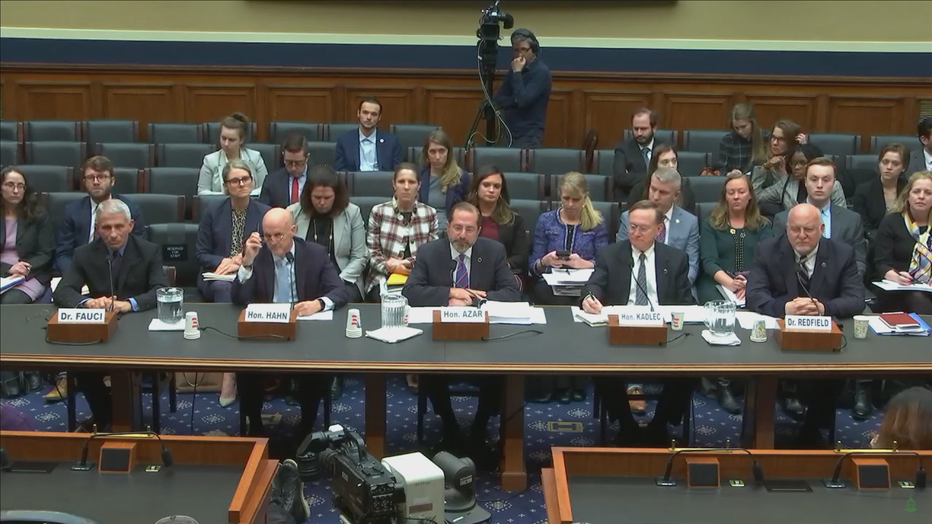Federal health officials answer lawmakers’ questions about coronavirus during hearing
WASHINGTON - Federal health officials answered lawmakers' questions about the coronavirus and the government’s preparations for a potential outbreak on Capitol Hill on Wedesnday.
Though the numbers of those infected with coronavirus continues to grow, federal health officials stressed the U.S. is still at a low risk.
But with concern growing about the spread of the virus, the Department of Health and Human Services secretary explained to congress his department's plan for emergency spending.
“First, expand our surveillance systems so we have novel coronavirus surveillance comparable to what we have for the flu because that's the bedrock of our health response. Second, money to support state and local health that are going to have to do a lot of work here,” said HHS Secretary Alex Azar.
He said the money would also go to theraputic and vaccine research and development and strategically stockpiling personal protective equipment -- like N-95 respirators capable of filtering out bacteria and viruses. Sixty percent of those respirators are manufactured outside of the U.S. in places like China and Mexico.

Azar was asked how long it would take to scale up that production.
“It will take time because we do not have as much domestic manufacturing. Is it a national security threat that 90 percent of our generics are coming from China? We've got this kind of shortage, what are we gonna do,” Azar said.
If the U.S. does experience a widespread outbreak, the secretary said it is unlikely HHS will use the same lockdown procedures china has in place in Wuhan.
“In the event we had community level outbreaks, which might be small, just a town or a city, if we had that, we would take the pandemic playbook which is community based mitigation steps, social distancing,” Azar said. “It is very rare those types of cordon around cities are effective, they usually provoke more panic and cause people to leave and spread.”
House representatives also expressed concern for possible shortages in imports from China like pharmaceuticals. The FDA commissioner assured them there is an adequate supply and manufacturers are required to notify them if they become aware of one.

